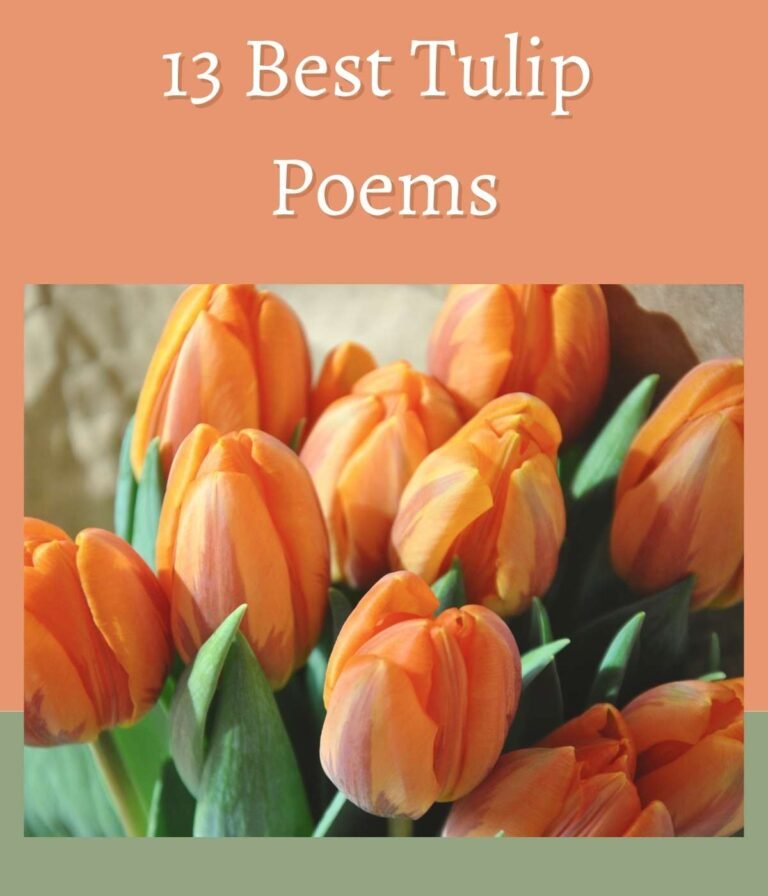Inside: 7 examples of weather in poems where it just makes the mood for the whole thing.
I think we can all agree that weather is one of the biggest external indicators of our moods daily. If it’s all sunshine and warmth, the weather and the universe is only setting us up to be in a good mood and enjoy the day. The feeling of sunshine hitting your shoulder is a definite and automatic mood boost that can’t be replicated by anything else.
When it’s dark, overcast, and gloomy, I don’t always feel like going out and having the best day. Some people love this weather, it’s definitely a difference in personality. But for the most part, it creates a pretty melancholy and slow vibe for the day.
Surely you remember from English classes that our teachers used to make us analyze the weather in the story that we’re reading to foreshadow certain events or moods of the characters on the pages.

Weather changes everything!
What’s your favorite weather? And does reading works of poetry and literature set in those weather conditions make you feel a certain way?
When you can picture yourself running around outside in the warm spring sunshine, or on a beach in a brisk breeze, you know that your mood is lifted. Even if you are one of those people whose moods are elevated by the rainy weather, you’re likely still going to feel a little somber and feel that mood switch when the author or poet mentions the rainy day or the cloudy sky.
Whatever you feel in certain kinds of weather conditions, you’re going to feel it even more so when you’ve got your nose deep in some poetry. Reading poetry usually puts me in a rainy day kind of head space, and this is only going to elevate it.
Weather References In Poetry
As I dig more into it, weather references in poetry are so beautifully done and well executed. It’s so subtle that you hardly notice it, but it sets the scene perfectly.
Digging into any poetic elements that set scenes easily and allow the reader to know exactly how to feel and what the poet or author is thinking, feeling, and experiencing is an important element to the poem.
Weather really is one of the most universally relevant references. Though we experience it all differently, and some parts of the globe see rain or sunshine more than other parts, for the most part, we all generally know the feeling of a warm summer day and a chilly, gloomy rainy week.
Not only is it an effective element to be able to portray any mood or setting for a work of art, it’s also super practical.
No matter what you’re doing or where you are, you’re affected and impacted by the weather. The weather plays a part in your day whether it’s rain or shine, hot or cold, in some way you’re experiencing the weather. So an author telling you what they or their character is seeing and experiencing is a practical easy to tell a story and fill the reader in on what the mood is like in the story.
Symbolism In Literature
Weather can mean so many things in the literary world. And while there’s a bit more depth and context that goes into it in a piece of literature versus a poem, some of the representation means the same in both kinds of works.
Rain generally represents misery or sadness, but there are other forms of rain and how your character can be telling their story based on how they interact with the rain.
Rain can be used to represent misery, cleansing, or drowning. Even restoration can be represented by rain, but it all depends on what’s going on in the story or poem to make the reader see what’s going on with the character and how the rain is impacting their story.
Fog can represent uncertainty and snow can add severity to a scene. Think like in Harry Potter and the Half Blood Prince when their peer touches the cursed necklace and is hexed. They are walking in the snow and you can feel the heaviness of the scene before anything even happens.
Finding meaning to weather in poems can be straightforward at times. Like, Sunshine is known to mean general brightness, of a mood or future, foreshadowing good things coming.
Interpret these weather conditions as you see fit. It’s a great way to dig deeper into interesting writings.
Weather In Poetry

1.The Rainy Day
The day is cold, and dark, and dreary;
It rains, and the wind is never weary;
The vine still clings to the mouldering wall,
But at every gust the dead leaves fall,
And the day is dark and dreary.
My life is cold, and dark, and dreary;
It rains, and the wind is never weary;
My thoughts still cling to the mouldering Past,
But the hopes of youth fall thick in the blast,
And the days are dark and dreary.
Be still, sad heart! and cease repining;
Behind the clouds is the sun still shining;
Thy fate is the common fate of all,
Into each life some rain must fall,
Some days must be dark and dreary.
2. A Summer Shower
A drop fell on the apple tree,
Another on the roof;
A half a dozen kissed the eaves,
And made the gables laugh.
A few went out to help the brook,
That went to help the sea.
Myself conjectured, Were they pearls,
What necklaces could be!
The dust replaced in hoisted roads,
The birds jocoser sung;
The sunshine threw his hat away,
The orchards spangles hung.
The breezes brought dejected lutes,
And bathed them in the glee;
The East put out a single flag,
And signed the fete away.
3. During Wind And Rain
They sing their dearest songs—
He, she, all of them—yea,
Treble and tenor and bass,
And one to play;
With the candles mooning each face. . . .
Ah, no; the years O!
How the sick leaves reel down in throngs!
They clear the creeping moss—
Elders and juniors—aye,
Making the pathways neat
And the garden gay;
And they build a shady seat. . . .
Ah, no; the years, the years,
See, the white storm-birds wing across.
They are blithely breakfasting all—
Men and maidens—yea,
Under the summer tree,
With a glimpse of the bay,
While pet fowl come to the knee. . . .
Ah, no; the years O!
And the rotten rose is ript from the wall.
They change to a high new house,
He, she, all of them—aye,
Clocks and carpets and chairs
On the lawn all day,
And brightest things that are theirs. . . .
Ah, no; the years, the years;
Down their carved names the rain-drop ploughs.
Poems With Weather References

4. Sleet
What was it like before the doctor got there?
Till then, we were in the back seat of the warm
dark bubble of the old Buick. We were where
we’d never not been, no matter where we were.
And when the doctor got there?
Everything outside was in a rage of wind and sleet,
we were children, brothers, safe in the back seat,
for once not fighting, just listening, watching the storm.
Weren’t you afraid that something bad might happen?
Our father held the wheel with just two fingers
even though the car skidded and fishtailed
and the chains clanged raggedly over ice and asphalt.
Weren’t you afraid at all?
Dad sang for someone to fly him to the moon,
to let him play among the stars, while Mom
held up the lighter to another Marlboro.
But when the doctor started speaking. . .
The tip of the Marlboro was a bright red star.
Her lips pursed and she released a ring of Saturn,
which dissolved as we caught at it, as my dad sang Mars.
When you realized what the doctor was saying. . .
They were closer to the storm in the front seat.
The high beams, weak as steam against the walled swirling,
only illuminated what we couldn’t see.
When he described it, the tumor in the brain and what it meant. . .
See, we were children. Then we weren’t. Or my brother wasn’t.
He was driving now, he gripped the steering wheel
with both hands and stared hard at the panicked wipers.
What did you feel?
Just sleet, the slick road, the car going way too fast,
no brother beside me in the back seat, no singing father,
no mother, no ring of Saturn to catch at as it floats.
5. In April
This I saw on an April day:
Warm rain spilt from a sun-lined cloud,
A sky-flung wave of gold at evening,
And a cock pheasant treading a dusty path
Shy and proud.
And this I found in an April field:
A new white calf in the sun at noon,
A flash of blue in a cool moss bank,
And tips of tulips promising flowers
To a blue-winged loon.
And this I tried to understand
As I scrubbed the rust from my brightening plow:
The movement of seed in furrowed earth,
And a blackbird whistling sweet and clear
From a green-sprayed bough.
6. A Crosstown Breeze
A drift of wind
when August wheeled
brought back to mind
an alfalfa field
where green windrows
bleached down to hay
while storm clouds rose
and rolled our way.
With lighthearted strain
in our pastoral agon
we raced the rain
with baler and wagon,
driving each other
to hold the turn
out of the weather
and into the barn.
A nostalgic pause
claims we saved it all,
but I’ve known the loss
of the lifelong haul;
now gray concrete
and electric light
wear on my feet
and dull my sight.
So I keep asking,
as I stand here,
my cheek still basking
in that trick of air,
would I live that life
if I had the chance,
or is it enough
to have been there once?

7. Rain
Rain, midnight rain, nothing but the wild rain
On this bleak hut, and solitude, and me
Remembering again that I shall die
And neither hear the rain nor give it thanks
For washing me cleaner than I have been
Since I was born into this solitude.
Blessed are the dead that the rain rains upon:
But here I pray that none whom once I loved
Is dying tonight or lying still awake
Solitary, listening to the rain,
Either in pain or thus in sympathy
Helpless among the living and the dead,
Like a cold water among broken reeds,
Myriads of broken reeds all still and stiff,
Like me who have no love which this wild rain
Has not dissolved except the love of death,
If love it be towards what is perfect and
Cannot, the tempest tells me, disappoint.
Weather controls everything in life around us. It controls what we do for the day, what we wear, what we want to eat, and if we want to run those extra errands or not.
So I love when it’s introduced into a work of writing that I’m enjoying as an element of scenery. Because when an author or poet introduces it, I always know exactly the feeling around the day or moment that they’re telling a story about. You simply can’t miss it. Weather and the feelings it produces is a universal sensation that we all know and understand more than we think.
Dissecting some of these weather in poems with nature elements, even if the poem isn’t about weather itself, is a classic form of literary analysis, and I live for this kind of study.
Some great examples of this can be found in a lot of Greek poetry!







